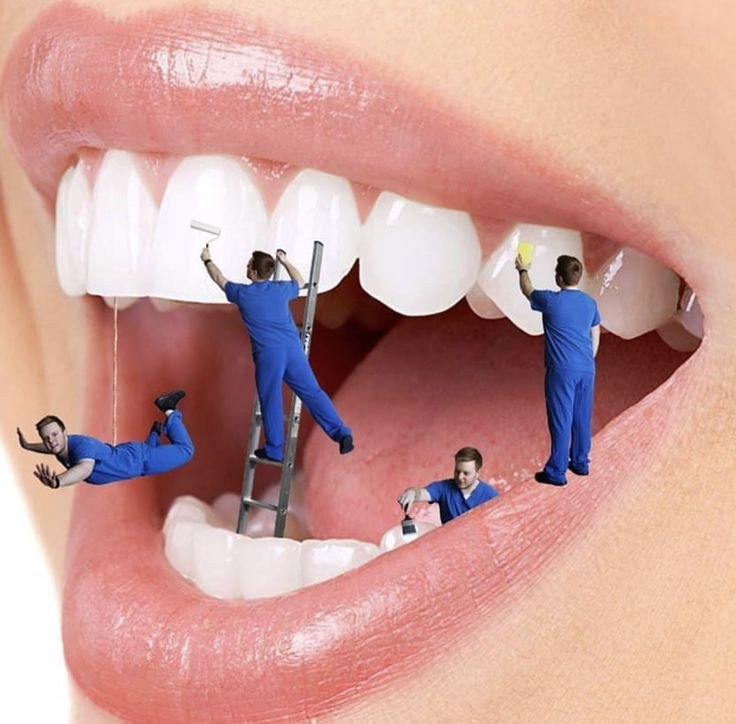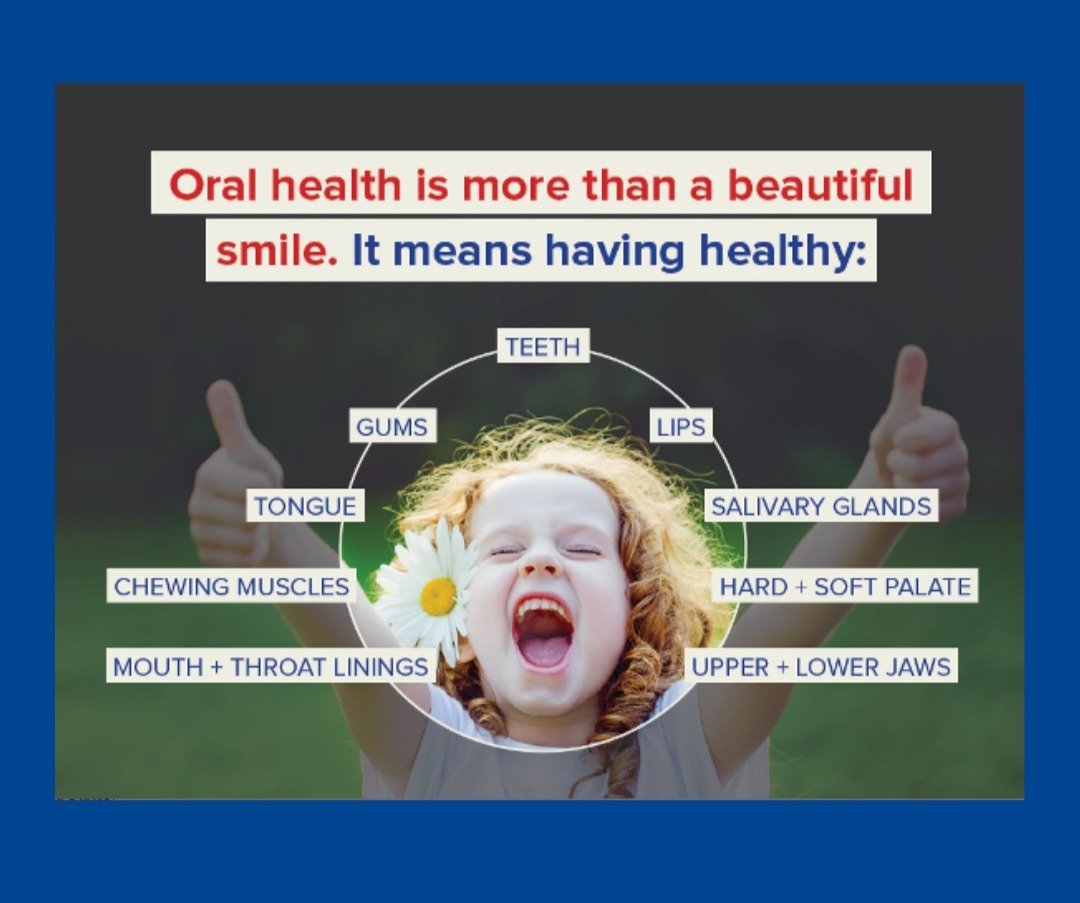Oral Health And Hygiene
World Oral Health Day: Promoting Healthy Smiles Around the Globe
A Happy Mouth is a Happy Body is the theme for World Oral Health Day in 2024.
Increase knowledge of importance of dental health and how it relates to overall health.
– Give people the information and resources they need to keep their mouths healthy so they can take control of their oral health.
Oral Health And Hygiene – Inspiring World with Health Smile
Dental plaque is a sticky, white layer of bacteria that needs to be removed in order to maintain the health of your teeth. Gum disease and tooth decay are both brought on by plaque accumulation.
Tooth decay can affect teeth with fillings as well. Under a chipped filling, plaque can accumulate and lead to further deterioration. Additionally, tooth decay can affect the exposed tooth roots in parts of your mouth where gum recession has caused your gums to recede from your teeth.
Date :
World Oral Health Day is set for Wednesday, March 20, 2024, this year.
What is oral health?
Oral health means the health of the mouth. The World Oral Health campaign’s purpose is to increase public awareness of the value of healthy brushing and flossing for both kids and adults.
The capacity to speak, smile, smell, taste, touch, chew, swallow, and confidently express a range of emotions through facial expressions without pain, discomfort, or diseases of the craniofacial complex (head, face, and oral cavity) are all aspects of oral health.
How to Celebrate World Oral Health Day
There are many ways to participate in World Oral Health Day and contribute to the global oral health movement. Here are a few ideas:
1. Spread the Word
Use the power of social media to raise awareness about World Oral Health Day. Share informative posts, videos, and graphics that highlight the importance of oral health. Encourage your friends, family, and followers to take care of their oral health and share their own oral health stories.
2. Organize Community Events
Plan and host a community event to promote oral health. This could include free dental check-ups, oral health education sessions, or activities for children to learn about proper oral hygiene. Collaborate with local dental professionals, schools, and community centers to make the event a success.
3. Support Oral Health Initiatives
Donate to or volunteer with organizations that work towards improving oral health in underserved communities. These organizations provide dental care, oral health education, and resources to those who may not have access to proper dental services.
4. Practice Good Oral Hygiene
Take this opportunity to review your oral hygiene routine and make any necessary improvements. Brush your teeth at least twice a day, floss daily, and use mouthwash to maintain a healthy mouth. Remember to replace your toothbrush every three to four months and schedule regular dental check-ups.
Oral Health Issues:
Halitosis, or bad breath: Unhealthy eating habits, smoking, medications, and particular foods can all contribute to persistent foul breath.
Toothaches: Dental cavities, gum disease, infections, and fractures are just a few of the conditions that can cause teeth aches.
Gum Disease: Two prevalent types of gum disease are periodontitis and gingivitis. Gum inflammation, or gingivitis, is different from periodontitis, a more serious illness that, if ignored, can result in tooth loss.
Tooth decay: Also referred to as cavity formation or cavities, tooth decay is caused by oral bacteria that release acids that erode tooth enamel.
Oral Cancer: The hard and soft palates, sinuses, throat, lips, tongue, cheeks, and floor of the mouth can all be affected by oral cancer. For treatment to be successful, early detection is essential.
Oral Trauma: Accidents, sporting events, or violent altercations can cause harm to the lips, tongue, teeth, or mouth.
This Day emphasizes the importance of collective action in improving oral health globally. Governments, healthcare professionals, and individuals all have a role to play in promoting oral health and preventing oral diseases.
Governments can develop and implement policies that prioritize oral health, ensure access to affordable dental care, and integrate oral health into primary healthcare systems. Healthcare professionals can educate their patients about the importance of oral health, provide preventive and curative dental services, and advocate for oral health promotion.
As individuals, we can take responsibility for our own oral health and encourage others to do the same. By adopting good oral hygiene habits, making healthy food choices, and seeking professional dental care, we can contribute to the well-being of our mouths and bodies.
Prevention

The majority of oral health issues are primarily treatable when caught early and can be prevented.
Among them are
- encouraging the consumption of a well-balanced diet that is high in fruits and vegetables and low in free sugars, with water being the preferred primary beverage.
- Steer clear of any tobacco products, including areca nut chewing.
- Cut back on your alcohol intake
- Observe good dental hygiene by flossing and brushing twice daily.
- Regularly visit the dentist
Important details
Even though they are usually preventable, oral diseases are a significant health burden in many nations and can cause pain, discomfort, disfigurement, and even death in certain cases.
- Oral health issues are expensive to treat and typically aren’t covered by universal health coverage.
- The majority of low- and middle-income nations lack enough resources for the diagnosis, treatment, and prevention of oral health issues.
- A variety of modifiable risk factors, including as sugar consumption, tobacco use, alcohol use, and poor hygiene, as well as the underlying social and commercial determinants of these conditions, are linked to numerous noncommunicable diseases (NCDs) and cause oral disorders.
The World Oral Health Day’s significance On March 20, 2024, the World Oral Health campaign will take place. The campaign’s relevance is in spreading knowledge about the value of healthy oral hygiene practices for both adults and children. Smoking and unhealthful eating habits are two major contributors to dental conditions. These may result in discomfort, pain, social isolation, low self-esteem, and other health issues.
History
World Oral Health Day originated in 2007. Originally, September 12th was designated as World Oral Health Day. However, in 2013, the date was shifted to March 20th, as September 12th also happens to be Dr. Charles Godon’s birthday, the creator of FDI.
Programs for prevention, detection, and treatment are also intended to be supported and funded by World Oral Health Day.
FDI is urging government officials, media outlets, and members of the National Dental Associations to take part in both domestic and international events on the occasion of World Oral Health Day. The campaign’s goal is to increase public awareness of the dental and oral health issues that are preventable through education, awareness-building, and provision of pertinent information.
Oral Health
See Also





Pingback: International Day of Happiness Benefits